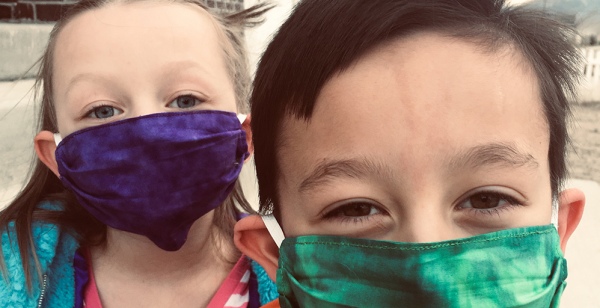Community
New report highlights negative impacts of pandemic on youth, makes recommendations to prevent future delinquency

BOSTON, MA — Wednesday, the Juvenile Justice Policy and Data Board released recommendations for supporting youth and preventing further delinquency, following an exploration into how the COVID-19 pandemic has affected youth’s current—as well as possible future—involvement with the Massachusetts juvenile justice system. The report’s analysis draws from research on risk factors of juvenile justice involvement, delinquency prevention, and positive youth development.
“The COVID-19 pandemic has taken an extraordinary toll on youth and families, amplifying stressful situations and exacerbating a variety of factors that can increase a youth’s likelihood of delinquent behavior,” said Maria Mossaides, Director of the Office of the Child Advocate and Chair of the JJPAD Board. “But we are not powerless in the face of these challenging circumstances: we can take action to strengthen supports for youth and families, building on lessons learned from the pandemic as well as decades of research on effective practices for preventing delinquency.”
COVID-19andtheMassachusettsJuvenileJusticeSystem-JJPADReportOctober2021One promising practice the report highlights is the reduction in the number of youth taken into custody and held in out-of-home juvenile justice system placements during the pandemic. From March 2020 through February 2021, compared to the year prior, there was a significant decrease in juvenile justice system utilization, including:
· A 40% decrease in average monthly overnight arrest admissions
· A 48% decrease in average monthly detention admissions
· A 62% decrease in average monthly new DYS commitments
Given the negative impact out-of-home placement can have on short- and long-term youth outcomes, including risk of future delinquency, this reduction is a silver lining of the pandemic. The report attributes this significant decrease to both a shift in “circumstantial” factors during the pandemic (e.g. being around peers) that are tied to increased likelihood of delinquent behavior AND to a concerted effort by juvenile justice system stakeholders to divert youth and/or keep them out of detention facilities as much as possible during the pandemic.
The report finds, however, that there was a small but significant cohort of youth who were held – and in some cases are still held – in detention for significantly longer periods of time than they otherwise would have been due to delays in jury trials. Data on the demographics of the detention population show these youth are disproportionately Black and Hispanic/Latino.
The report also highlights how the pandemic and the restrictions put in place to keep people safe from COVID-19 have put some youth at increased risk of future delinquency and juvenile justice system involvement. The risk factors for juvenile delinquency impacted or exacerbated by the pandemic include disconnection from prosocial
connections and activities, mental health issues or trauma, strained family circumstances, disengagement from school, and substance use issues and disorders. The JJPAD Board warns that the combination of all of those factors could have a significant impact on the long-term trajectories of many children in the Commonwealth, including increasing rates of delinquency or recidivism. The report outlines numerous concrete actions state government actors – from legislators who allocate funding to individual practitioners who work with youth on a day-to-day basis – can take to mitigate the impact the pandemic has had on youth and support their positive development. These recommendations include building upon successful policies and practices adopted during the pandemic, expanding the availability of mental health and substance use services for youth and supports for families, and increasing funding for community-based programs aimed at reducing justice system involvement and promoting prosocial activities.







You must be logged in to post a comment Login